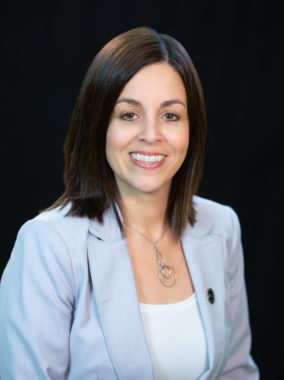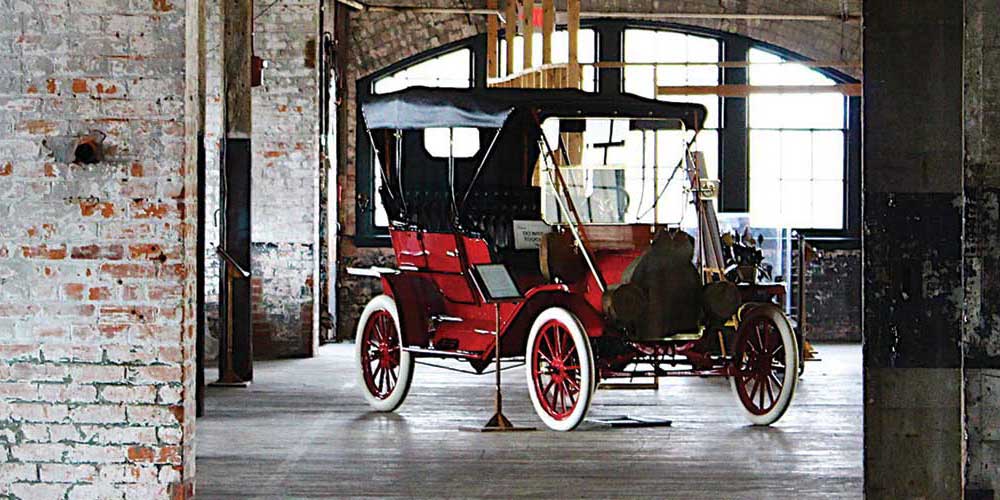
Cindy Estrada is a UAW Vice President and currently heads the Stellantis (formerly Fiat Chrysler Automobiles) and Women’s Departments.
She earned a degree in education from the University of Michigan and had planned to become a teacher. After organizing with the United Farm Workers union on an internship, she was drawn to union organizing instead.
Estrada worked as a UAW Region 1A temporary organizer, successfully organizing a number of parts suppliers. She helped organize workers at Mexican Industries in southwest Detroit in 1995, resulting in one of the UAW’s largest victories among Spanish-speaking manufacturing workers.
Estrada’s organizing ability was recognized by then-UAW President Stephen P. Yokich, who appointed Estrada to the UAW International’s organizing staff in 2000.
She was soon appointed coordinator of Michigan organizing and ran the Michigan Organizing Center. In 2007, UAW Vice President Terry Thurman appointed her as the Administrative Assistant over the Organizing Department. After Terry Thurman’s retirement, UAW President Ron Gettlefinger appointed Estrada as the Director of the National Organizing Department.
She was first elected UAW Vice President in 2010 and assigned to direct the union’s UAW Independents, Parts and Supplier/Competitive Shop Department; Public Sector and Health care servicing department and the UAW Women’s Department. While in that role, she was the lead negotiator for over 17,000 UAW workers in the State of Michigan.
Estrada also led negotiations for the Michigan Coalition of State Employee Unions, providing historic agreements protecting health care and establishing vital programs addressing privatization and workplace democracy for over 35,000 state employees.
As director of UAW Independents, Parts and Suppliers/Competitive Shop Department, Estrada proudly honored the reason Walter Reuther urged the department’s establishment in 1968: to use the UAW’s parts worker density to establish minimum industry-wide compensation standards in IPS contracts. This resulted in breakthrough agreements in seating and other major auto component part industries.
Four years later, she became the first woman and first Latina to lead the union’s General Motors Department.
The long-time organizer and activist is involved with many labor and community organizations. She is the mother of twin 17-year-old sons, stepmother to four and grandmother of six. She is the widow of the late UAW organizer and retired Administrative Assistant Frank White.
Our Executive Director Shawn Pomaville-Size recently sat down with Estrada to discuss her career as we conclude our observance of Women’s History Month for 2021. Thanks to MotorCities board member Sandra Engle, Assistant Director of the UAW National Education Department, for her assistance.
Tell us about your family roots in SW Detroit and they influenced your path in life.
My mother was Polish, and my father is Mexican. They married at a time when the races just didn’t mix. My father was a bar owner in southwest Detroit, and his brothers worked in the auto plants for GM and Ford. My Dad chose a different route because he wanted to own his own business, but he was a union member before that. I met a wide variety of people because my Dad’s bar attracted a diverse group of people, and a lot of union people came in there. I learned a lot by observing my father’s interactions with the union members, and the auto plants were important to his business. People came in for lunch. They came in to cash checks. What influenced me the most was when the plants started to close down and the impact that had when people started losing their jobs. That impacted small business owners as well. I watched the community suffer in a deep way. I heard their stories first hand, and that influenced what I did later on in life.
So, how did you get started in labor organizing work?
I had always grown up hearing about Cesar Chavez, and the United Farm Workers used to have an office located right next door to my father’s bar. As I young child, I remember supporting the grape boycott, the lettuce boycott, etc. I remembering thinking that I wanted to work for Cesar Chavez someday. When I went to college, I thought I wanted to be a teacher, but I wanted to do an internship out there. And I did. I went out to California and worked with Delores Huerta, who was a co-founder of the UFW. A lot of people don’t know that she co-founded the union with Cesar Chavez. Working with her changed my life. I had lots of discussions with her, and one was around the idea that it’s great to teach children, but how do we make sure that their parents have enough disposable income to support those children. It really changed where I wanted to go and the social justice that I wanted to fight for.
I came back to Michigan still thinking I was going to go into teaching. I had a job temporarily in a union shop when Mexican Industries was organizing. They had multiple auto parts-making plants in southwest Detroit back then. They had mostly Spanish-speaking women workers. Someone invited me to a meeting and asked me to translate. Just translate. And I never turned back.
You can hear the entire interview here.



